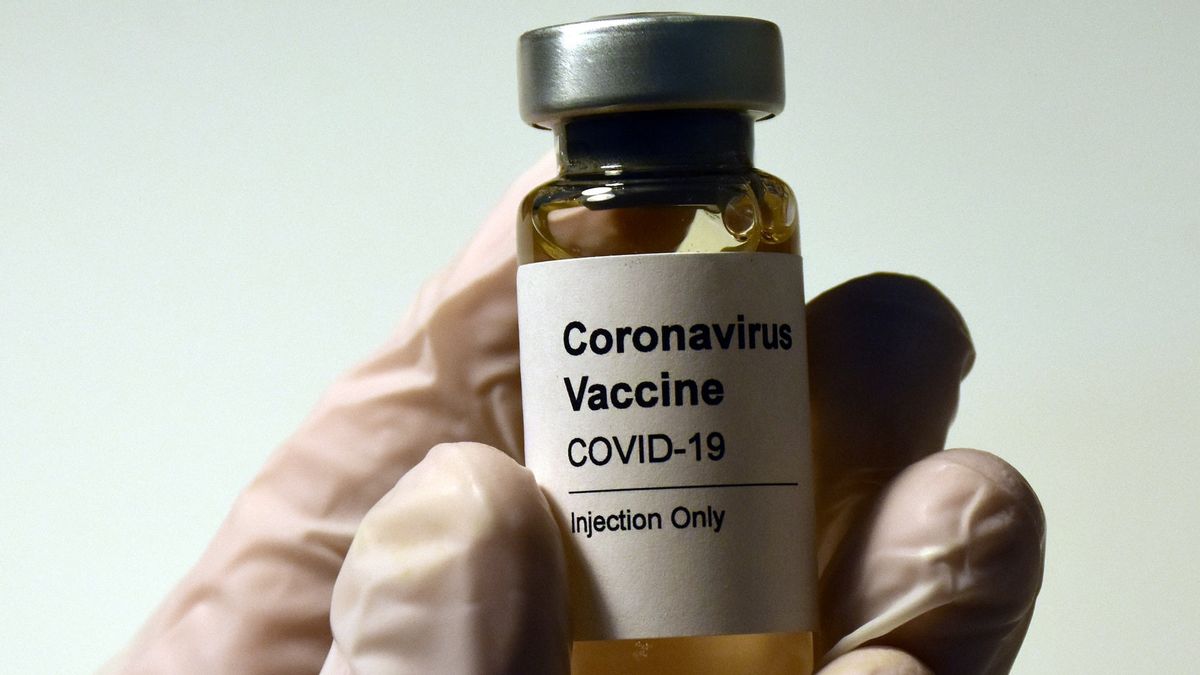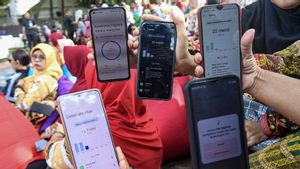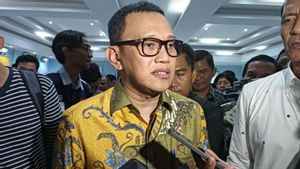JAKARTA - A number of survey agencies assessed that the government should collaborate with leaders so that a group of people would want to undergo the COVID-19 vaccination. However, can someone's character make people in certain groups want to run this government priority program?
The survey institute Saiful Mujani Research and Consulting (SMRC) said Defense Minister Prabowo Subianto could be a role model for his supporters to receive the COVID-19 vaccine. This is illustrated by the results of a survey entitled Effects of Health Leaders and Authorities on Citizens Intention to be Vaccinated: Experimental Survey.
Apart from Prabowo, health workers, especially doctors, are also role models. This is because in the survey that was followed by 1,401 respondents, it was found that the willingness of residents to know that doctors and Prabowo Subianto had been vaccinated, respectively, reached 74 percent and 73 percent.
As for the reason Prabowo can set an example for his supporters, because the sentiment of the 2019 presidential election is still there.
"Citizens still seem to be politically divided as a result of the 2019 presidential election even though Prabowo himself has entered the cabinet," said SMRC Research Director Deni Irvani in a written statement, Monday, March 29.
He explained that Prabowo's voters were only 46 percent willing to vaccinate, far below Jokowi's 71 percent voters.
"However, once it was said that Prabowo was vaccinated, the percentage of Prabowo voters who wanted to be vaccinated actually increased from 46 percent to 67 percent," he said.
"This shows Prabowo is a role model for his supporters not only in politics but also in terms of health-related behavior such as the willingness to be vaccinated," added Deni.
Apart from Prabowo, the frontman of the Islamic Defenders Front (FPI) who is now a defendant, Rizieq Shihab, is also proposed to be involved as an influencer of the COVID-19 vaccine. This proposal came from the Executive Director of Indonesian Political Indicators, Burhanuddin Muhtadi.
According to him, making Rizieq an influencer of the COVID-19 vaccine could increase public trust. Especially, after a polemic about the vaccine made by AstraZeneca which was thought to contain pork enzymes.
"I suggest that even Habib Rizieq Shihab be a vaccination influencer. Because this is so that people do not see this as a political issue, but this is a common issue," said Burhanuddin in an online release of the Indicator survey broadcast on YouTube, Sunday, March 21.
He also said, based on the results of the Indicator survey in February 2021, it was recorded that as many as 81 percent of respondents considered the halal factor of the COVID-19 vaccine to be an important issue in the national vaccination program. Meanwhile, as many as 15 percent of respondents rated the safety aspect of vaccines as more important than halal.
Thus, the government should begin to maximize the roles of religious leaders, especially ulama, to make the national vaccination program a success.
"This means that this halal issue is crucial, including for me the government must maximize the role of clerical and religious leaders. So the vaccine influencer is not only Raffi Ahmad," he said.
So is this method effective?
Public policy observer from Trisakti University, Trubus Rahadiansyah, assessed that figures are not very effective in getting people to implement the COVID-19 vaccine. This is because political figures like Prabowo Subianto and religious figures like Rizieq Shihab are only supported by limited groups.
"Yes (influential, red) in their small circle. For example among supporters of the Gerindra Party, FPI. So if it is only political figures, religious figures, it only applies to limited groups, "he said when contacted by VOI.
"(Ketokohan, red) that applies, if he is the same type as Cak Nun, now it can. So it means that in the eyes of the public it has value and has no enemies, "added Trubus.
Even if the government wants to collaborate with figures, he said, the figures invited should be those who are close to the community and from their immediate environment. For example, the ustaz in the village to the social figures who often empower the village.
In addition, the government can also mobilize volunteers to door to door providing socialization starting from halal, efficacy, efficacy, to safety. In this way, of course public trust can increase.
"So that national figure cannot. They are recognized nationally, but not to move grassroots (grass roots or society). Because of what? There is a missing link at the public level. Except talking about politics, "he explained.
Meanwhile, a different view was conveyed by an epidemiologist from Australia's Griffith University, Dicky Budiman. He said, the vaccination program for the role of religious leaders to public figures is indeed necessary to attract the masses or audience.
However, the message related to vaccination, including its benefits, must still be conveyed by health experts. "So this research says like that. They are artists, religious leaders, public figures, and so on to strengthen and facilitate the congregation and fans and their supporters to listen. So what health experts say can be strengthened, "said Dicky.
Accompanied by health experts, those with character can also explain issues related to the COVID-19 vaccination program. This includes straightening out the hoaxes that have developed so that people want to be vaccinated.
"So he (public and religious figures, ed) can facilitate. For example, he held his recitation and then he invited health experts. That must be done and it is very appropriate to do it, "he concluded.
The English, Chinese, Japanese, Arabic, and French versions are automatically generated by the AI. So there may still be inaccuracies in translating, please always see Indonesian as our main language. (system supported by DigitalSiber.id)









